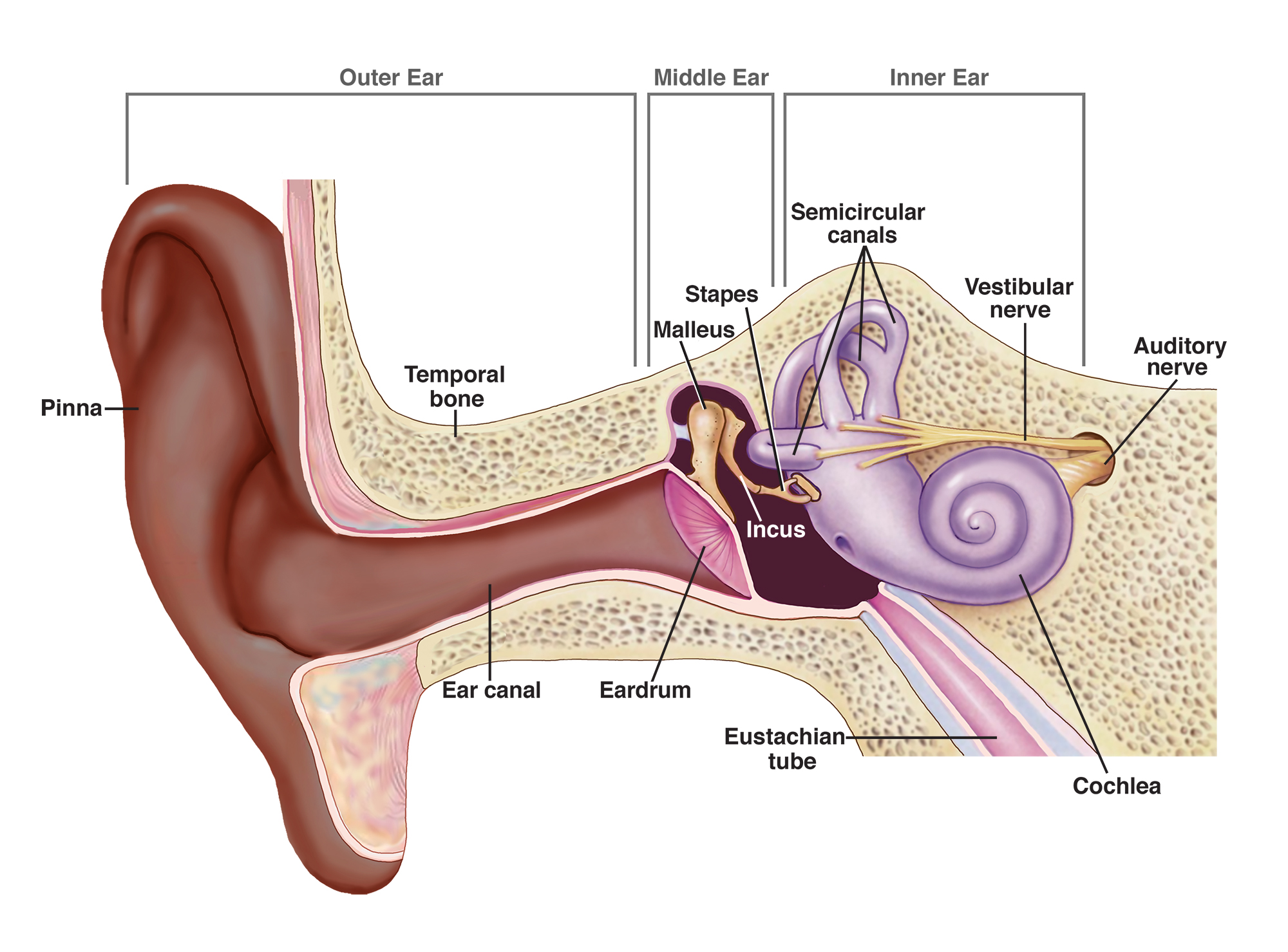Imagine a world where the vibrant sounds of life gradually fade into a distant murmur. This is the reality for many individuals, particularly seniors, living with Otosclerosis, a condition that affects the bones of the inner ear and leads to adult hearing loss. Despite its prevalence, there’s a lack of widespread understanding about Otosclerosis, especially its impact on daily life. This comprehensive guide delves into the condition, focusing on its medical aspects and the challenges it poses in various life stages, including school, socialization, and resilience.
Otosclerosis in Children: Academic and Social Challenges
Otosclerosis, though predominantly an adult condition, can also affect children, posing unique challenges in educational settings. It can lead to decreased academic performance and social isolation if not properly addressed. In classrooms, children with Otosclerosis may struggle to keep up due to difficulties in hearing instructions, often being misinterpreted as inattentive. This misunderstanding can lead to undue criticism and affect their social interactions, as they may find it hard to participate in group activities and form friendships.
Pediatric Otosclerosis: Emerging Research and Insights
The realm of pediatric Otosclerosis is less explored, but recent advancements are shedding light on its genetic aspects and improving diagnostic capabilities. Early detection and intervention are crucial in minimizing its impact on a child’s development. Innovative treatment methods, such as the use of bisphosphonates, are being researched to slow the progression of Otosclerosis in children.
Supporting Children with Otosclerosis: Parental Guidance and Strategies
Parenting a child with Otosclerosis involves understanding the condition, advocating for their needs, and fostering an environment that encourages resilience. Open communication about the condition, regular medical consultations, and building a support network are essential. Parents should also work closely with educators to ensure their child receives the necessary academic support and an inclusive environment.
Resilience in Teens with Otosclerosis: Coping and Adaptation
Fostering resilience in teens with Otosclerosis is vital. Support systems, including family, friends, and healthcare providers, play a crucial role. Encouraging self-advocacy, focusing on strengths, and engaging in enjoyable activities can boost their confidence and help them navigate the challenges of Otosclerosis.
Educational Accommodations for Students with Otosclerosis
Tailored accommodations in educational settings are essential for students with Otosclerosis. Assistive listening devices, preferential seating, visual aids, and modifications in testing conditions can greatly aid their learning. Creating an inclusive classroom environment is also crucial for their social well-being.
Latest Developments in Otosclerosis Research
Recent studies have made significant strides in understanding Otosclerosis. One notable development is the exploration of the genetic basis of the condition, leading to potential breakthroughs in early detection and treatment. Another area of progress is the advancement in surgical techniques, offering more effective and less invasive options for managing Otosclerosis.
Innovative Treatments and Therapies
The medical community is continually exploring new treatments and therapies for Otosclerosis. Recent trials have shown promising results with certain medications that could potentially halt or reverse the progression of the condition. Additionally, advancements in hearing aid technology and cochlear implants have greatly improved the quality of life for those affected.
Impact of Otosclerosis on Mental Health
Living with Otosclerosis can have a significant impact on mental health. Studies have found a correlation between hearing loss and increased risks of anxiety, depression, and social isolation. Recognizing and addressing these mental health aspects is crucial for comprehensive care.
FAQs About Otosclerosis
- What is Otosclerosis? Otosclerosis is a condition affecting the bones of the inner ear, leading to progressive hearing loss.
- Can Otosclerosis affect children? Yes, while more common in adults, Otosclerosis can also occur in children.
- How is Otosclerosis diagnosed? Otosclerosis is diagnosed through a combination of hearing tests and imaging studies.
- Are there genetic factors in Otosclerosis? Recent research suggests a genetic component in some cases of Otosclerosis.
- Can Otosclerosis be treated? Yes, treatments include hearing aids, surgery, and in some cases, medication.
- Does Otosclerosis impact mental health? Yes, it can lead to increased risks of anxiety, depression, and social isolation.
Practical Tips for Managing Otosclerosis
- Regular Hearing Assessments: Regular check-ups with an audiologist are crucial for monitoring hearing loss.
- Use of Assistive Devices: Hearing aids and other assistive devices can significantly improve hearing.
- Stay Informed: Keeping up-to-date with the latest research and treatment options is beneficial.
- Join Support Groups: Connecting with others who have Otosclerosis can provide valuable support and information.
- Mindfulness and Stress Reduction: Practices like meditation can help manage the stress associated with hearing loss.
Conclusion
Otosclerosis is more than a medical condition; it’s a life-altering challenge affecting individuals and families. Through understanding, support, and medical advancements, those affected can lead fulfilling lives. Parents play a pivotal role in this journey, and ongoing research continues to enhance our understanding and treatment of Otosclerosis.
References
- NCBI Bookshelf – Otosclerosis: This resource provides detailed information about Otosclerosis, including its abnormal bone remodeling in the middle ear. Read more on NCBI.
- PubMed – Otosclerosis: This is a scientific publication that offers insights into Otosclerosis, its causes, and characteristics. Access the publication on PubMed.
- Radiopaedia – Otosclerosis: This article on Radiopaedia discusses Otosclerosis, focusing on its presentation, diagnosis, and imaging characteristics. Explore the article on Radiopaedia.
National Institute on Deafness and Other Communication Disorders (NIDCD): Provides comprehensive information on Otosclerosis, including symptoms, causes, and treatments. NIDCD on Otosclerosis.
American Academy of Otolaryngology-Head and Neck Surgery: Offers detailed insights into the diagnosis, treatment, and recent advancements in Otosclerosis. AAO-HNS on Otosclerosis.
 Otosclerosisnih.gov
Otosclerosisnih.gov
Learn More
TINNITUS GURU
HEARING LOSS NEWS



